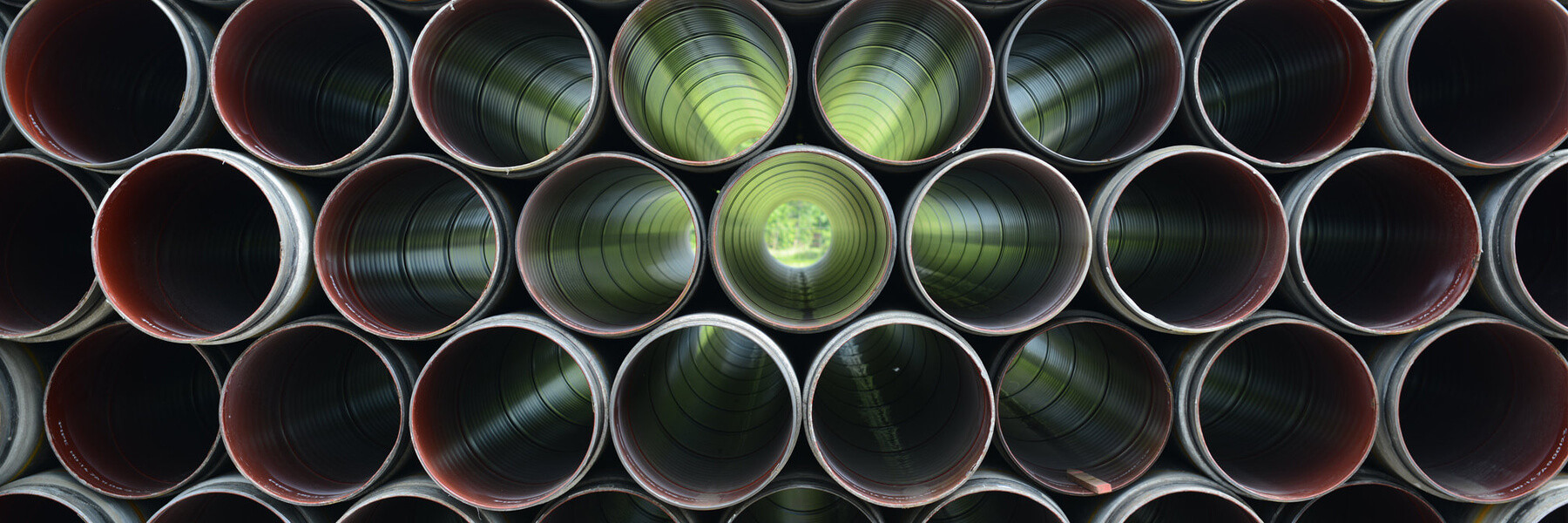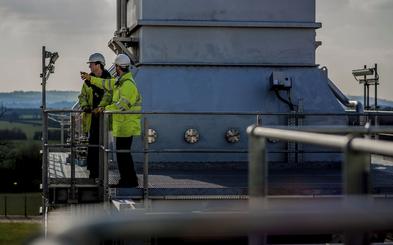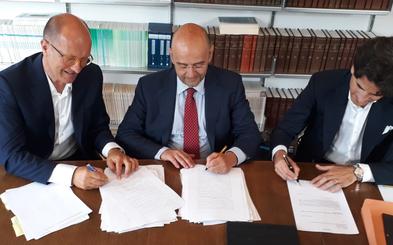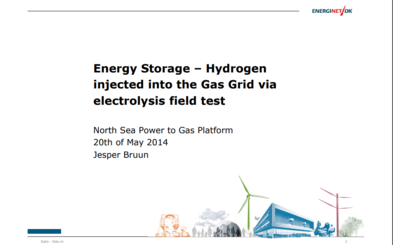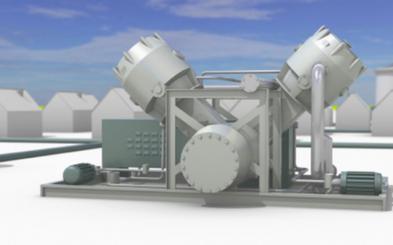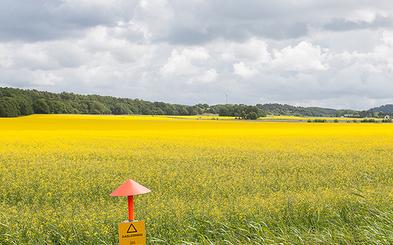INNOVATIVE PROJECTS PLATFORM
To efficiently build on its Members' actions to promote or contribute to innovative technologies, regulation and business models, and partnerships across the value chain, ENTSOG has created the Innovative Projects Platform to map TSOs’ projects and partnerships on Research, Development and Innovation (RDI) activities for the energy transition.
This public platform provides information and links to enable exchange of best practices applied at national level and in some cases, across borders through partnership efforts.
These innovative solutions focus on topics such as repurposing infrastructure for renewable gases and projects for hydrogen, CCS and CO2 transport, biogas, energy system integration. These innovative applications support the achievement of the current EU goals of reducing GHG emissions and reaching the decarbonisation goal of net-zero by 2050.
*Disclaimer: The content published on this page is information owned by TSOs and not by ENTSOG. It is therefore published on behalf of TSOs. Please note terms and conditions of use of the website (including article 7) are fully applicable to this page.
Technology
Discover here how technologies can optimise the usage of the grid, make digital layer connections and support decarbonisation of the EU gas system. Technology R&D has a vital role in the energy transition. ENTSOG Members (TSOs) are developing new and innovative technologies to offer sustainable solutions for the gas sector.
Regulation & Business Model
Stay informed on how ENTSOG Members (TSOs) engage in development of the new energy products and services to foster uptake of renewable and decarbonised gases into the grid.
Partnership
Look at new partnerships and initiatives formed by ENTSOG’s Members (TSOs). They are actively working together as well as with various stakeholders on projects aimed at decarbonisation of the gas sector and of the whole EU economy.
Hydrogen
Hydrogen is a gas under standard conditions and there are also different hydrogen derivatives, such as ammonia and synthetic electrofuel. sHydrogen can be produced from diverse process technologies, such as electrolysis and steam-methane reforming (with or without carbon capture and permanent storage of this carbon to reduce emissions).
Repurposing for Renewable Gases
Repurposing of pipelines for renewable gases transport (e.g. hydrogen) is a cost effective way to meet decarbonisation goals and can be undertaken without compromising the ability of the natural gas network to ensure security of supply.
Biogas
Biogas is obtained via the anaerobic decomposition of the organic matter. After the process of upgrading, biogas becomes biomethane with the same quality standard as natural gas and can be transported via the existing grid infrastructure.
CCS and CO2 Transport
Carbon Capture and storage is the process of capturing CO2 from a set of possible sources, such as for example fossil fuel power plants, transporting it to a storage site, and depositing it underground on a permanent basis. The aim is to prevent the release of CO2 into the atmosphere.
Energy System Integration
Integrated infrastructure planning for electricity and gases is essential to support the decarbonisation of the energy system sector, particularly for facilitating the transport of renewable gases like hydrogen.
CNG
Compressed Natural Gas (CNG) is a fuel source that is made from compressing natural gas to less than 1% of its standard atmospheric volume. CNG combustion produces fewer climate-impacting gases than other fossil fuels.
Digitalisation
Digitalisation can bring various benefits to day-to-day operations such as enhanced control over the gas quality and cost reductions. TSOs look at data-driven solutions to boost performance, efficiency and competitiveness.
Heating & Cooling
Cutting the energy consumption in heating and cooling in buildings and industry can be achieved through various technologies. TSOs are working on developing cost-efficient solutions for the decarbonisation of this sector.
Certification of green gases
To ensure the cross-border scale up and tradability of renewable, decarbonised and low-carbon gases. This can be achieved via pan European Guarantees of Origin and Certification Schemes.
National Grid Gas
Hydrogen in the NTS
National Grid are partnering with the Health & Safety Executive to undertake a technical evaluation of the capability of the UK’s National Transmission System (NTS) to transport hydrogen. This project will run up to Spring 2019 and will generate a deeper understanding of how introducing hydrogen will affect gas transmission assets physically; and of the standards required to facilitate hydrogen introduction. The project will also use the findings to evaluate potential UK sites which could demonstrate hydrogen introduction at scale, further advancing the UK’s green energy ambitions.
Contact: Lloyd.Mitchell@nationalgrid.com
Snam Rete Gas S.p.A.
IES Biogas
The acquisition of IES Biogas, one of the leading Italian companies in the design, construction and management of biogas and biomethane production plants, will enable Snam to develop biomethane plants, leveraging IES Biogas’ managerial expertise, and to promote the use of biomethane in the transport sector. The acquisition of IES Biogas has been performed by Snam4Mobility, the company through which Snam has been developing infrastructure for refuelling compressed natural gas (CNG) and liquefied natural gas (LNG) engines. The growing interest of the market for sustainable mobility powered by methane and biomethane shows that there is great potential for alternative uses of gas.
Contact: salvatore.ricco@snam.it
Fluxys Belgium S.A.
HYOFFWIND
Colruyt Group (Eoly), Parkwind and Fluxys join forces in power-to-gas. With the green energy project Hyoffwind, the partners want to build a power-to-gas installation to convert renewable electricity into green hydrogen through electrolysis. Hyoffwind has been set up as an industrial-scale installation (electrolysis of 25 MW of electricity), in line with the industrial projects that are being developed in neighbouring countries.
Contact: jan.vandenbulcke@fluxys.com
Energinet
M/R-Helle
M/R Helle is a demonstration project to test and evaluate the consequences of hydrogen/natural gas mixtures in the gas infrastructure. Mixtures of hydrogen and natural gas will be circulated for two years. The purpose of the project is to find the constraints and to prepare for a possible future handling hydrogen/natural gas in the gas grid.
Contact: til@energinet.dk
GRTGaz
Innovation in renewable gases
Interview with Thierry Trouvé to present the strengths and the place of renewable gas in the energy transition as well as the campaign 'Energy Possibles'.
Contact: jeanmarc.brimont@grtgaz.com
Swedegas AB
The Gas Barometer
The Gas Barometer is designed to measure the volume of biogas that is being transported and used in the gas distribution network. This pioneering initiative will allow Swedegas, in partnership with the companies that trade in gas in the network in western Sweden, to produce quarterly figures showing how much biogas is being transported and used in the network. The Gas Barometer will monitor growth in the use of biogas in the network. It can provide an illustration of the impact that control strategies and trading patterns in Sweden and in other countries are having on the market.
Contact: hanna.paradis@swedegas.se
Gasunie Transport Services
Greengas booster
Attero starts a pilot with Gasunie Transport Services (GTS) and Enexis for a large compressor (booster) that links the regional supply of green gas with the national demand. Attero wants to expand the production of green gas in Wijster, but it can not lose a larger production locally in the summer. In the summer period, the local demand for gas is low, while the production of green gas remains continuous. With the use of the booster, production can be fed throughout the year because the national network offers unlimited sales opportunities.
Contact:
Snam Rete Gas S.p.A.
Cubogas
With the newly created company Cubogas, wholly-owned by Snam4Mobility (the Snam company developing infrastructure for refuelling CNG and LNG engines), Snam has enlarged its activities with a business arm dedicated to technological solutions for natural gas supply stations. Snam will be able to increase the level of service it offers to investors in natural gas- and renewable gas-powered transport, as it will be supplying one of the best technologies for pollution reduction available helping the improvement of air quality.
Contact: salvatore.ricco@snam.it
Fluxys Belgium S.A.
Gaz Métro and Fluxys
Gaz Metro and Fluxys work together to develop the liquefied and compressed natural gas market. The agreement will pave the way for an exchange of information and expertise related to LNG and CNG, particularly on the technical, commercial, contractual, regulatory, fiscal and administrative fronts. The two parties, which indirectly share a major shareholder in the Caisse de dépôt et placement du Québec, have also agreed to explore co-investment opportunities as interesting projects take shape.
Contact: michel.vandenbrande@fluxys.com
Swedegas AB
Power to Gas
Swedegas has taken the initiative to develop Power to Gas in Sweden together with representatives from the Swedish energy industry. As part of a preliminary study, the conditions for Power to Gas were examined from a Swedish perspective. We are now planning to start up a pilot plant in Sweden.
Contact: hanna.paradis@swedegas.se
